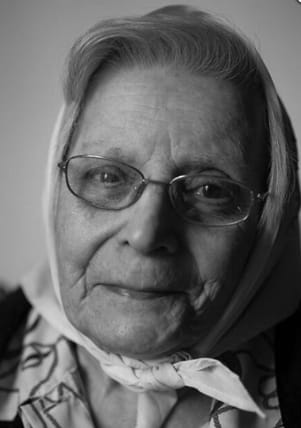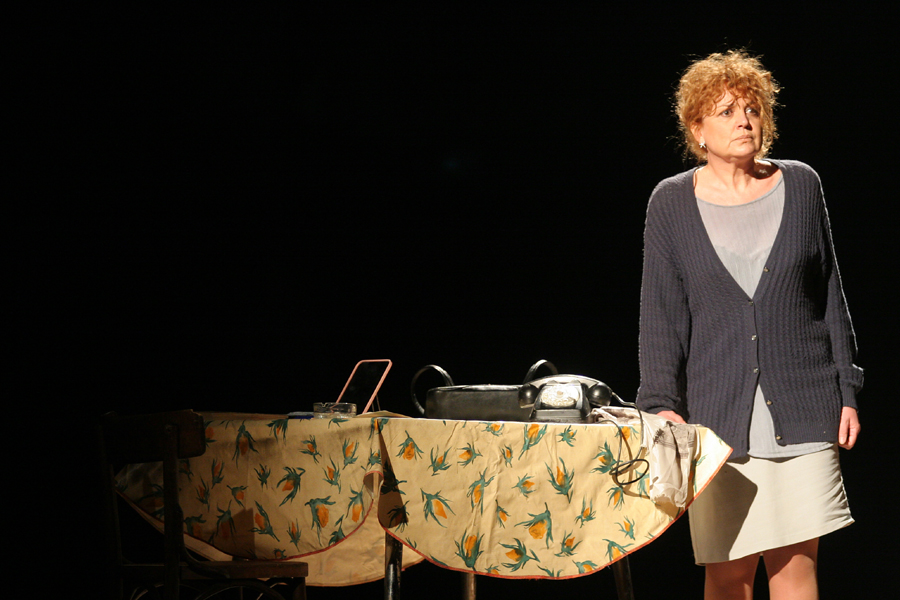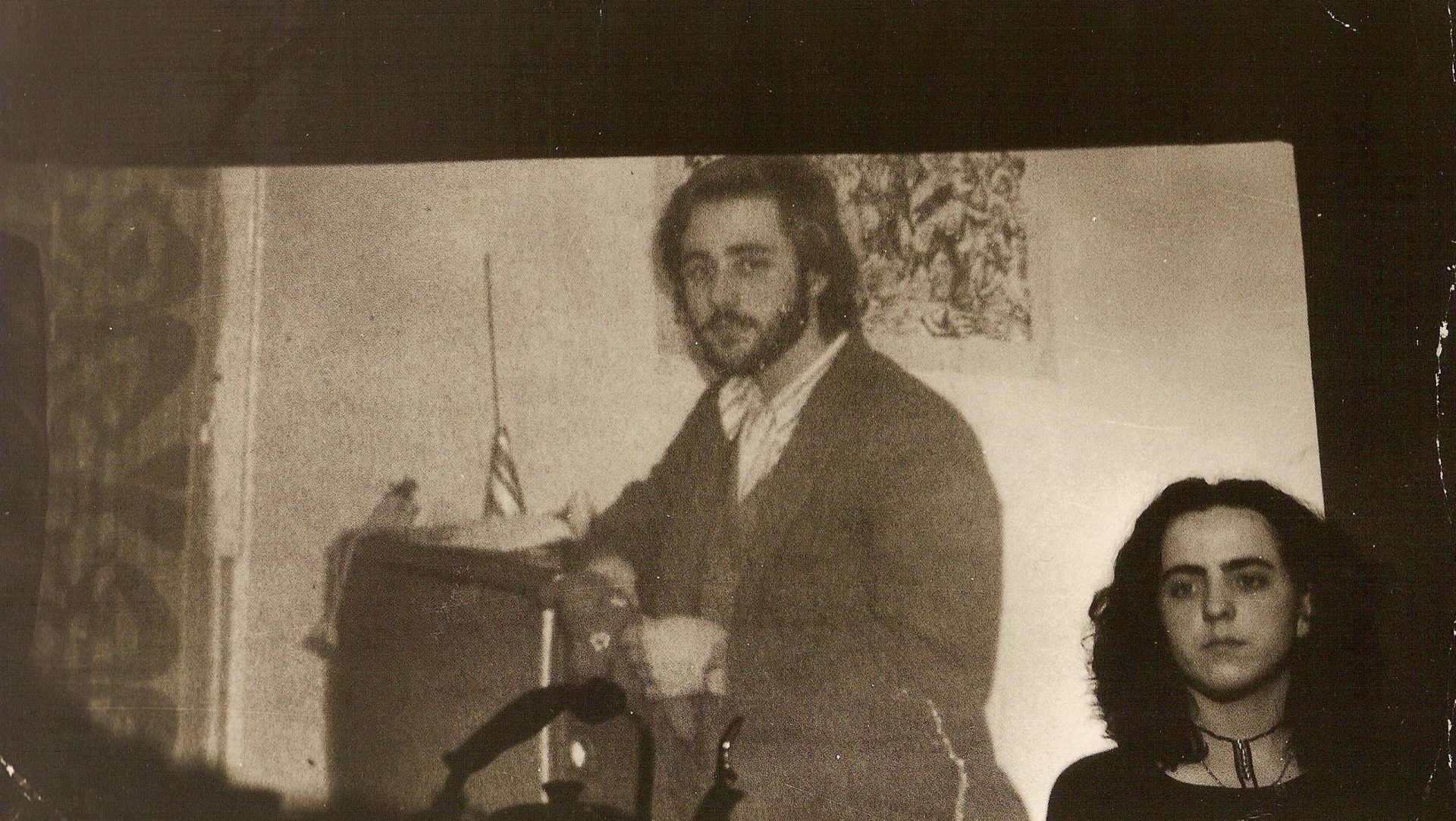A white handkerchief and a shared scene: The legacy of a mother of Plaza de Mayo

"We will all remember the enormous courage with which, during the dictatorship, she denounced to international journalism that the army was responsible for persecutions, break-ins, and kidnappings. She remained a leader." The Space for Memory and Human Rights in Buenos Aires, a place now a museum after tragically going down in history as one of the most active centers for detention and torture of people inconvenient to the regime during the Argentine military dictatorship, thus remembers Enriqueta Maroni on its Facebook page . She died on Tuesday, August 5th at the age of 98. She was one of the Madres de Plaza de Mayo Linea Fundadora , the movement born on April 30, 1977, when 14 mothers of disappeared children began walking slowly, arm in arm, in Plaza de Mayo in front of the Casa Rosada . Since then, every Thursday afternoon, they meet in that same square and walk in a circle, around the pyramid in the center, for about half an hour.

Enriqueta joined the other mothers after the passing of her son Juan Patricio and daughter Beatriz, along with their daughter-in-law and son-in-law, in 1977. "Enriqueta is the embrace," the brief condolence continues, "the smile, and the right word at all times. The example of the collective struggle for memory, truth, and justice." Her small figure, depicted in the images with a white headscarf tied around her head, a symbol of a protest that originally consisted of the first cloth diapers used for newborn children , will remain in the hearts of many. In Turin, this evening, she will be remembered at the Mausoleo della Bela Rosin, a large open space that during the summer is a cultural hub for those staying in the city in August. A theater company that has always made civic engagement its hallmark, linked to the Madres by a nearly thirty-year friendship, is based here.
"The first meeting dates back to 1998." Renzo Sicco , artistic director of Assemblea Teatro , has followed the Madres ' story from a distance for years: "I had heard about them from some political exiles in Spain, where I had lived for a long time. During a trip to South America, I went to visit them in their house in Buenos Aires."

Upon returning to Italy, there was another meeting, this time with a writer, Massimo Carlotto : "He had just published Le irregulari , a diary-cum-denunciation written after visiting the places where the atrocities of the Argentine dictatorship had taken place, where he had met the associations of the Madres de Plaza de Mayo and the Abuelas (grandmothers searching for the children of their disappeared loved ones, ed.)". Assemblea Teatro decided to rewrite it in the form of a screenplay, and thus Più di mille giovedì was born, an intense and powerful monologue that in over 500 performances has successfully confronted history.
The protagonist is actress Gisella Bein : playing a mother, she lays bare the plight of all the Madres of Plaza de Mayo. More than a thousand Thursdays premiered in July 2000 and has been performed in Rome in the Sala del Cenacolo at the Chamber of Deputies, in Chile in Santiago at the Museo della Memoria di Villa Grimaldi, in former clandestine detention centers in Cordoba, Rosario, and Buenos Aires, in Argentina, and twice in Plaza de Mayo itself. "Theater is fiction by definition; it doesn't intersect with reality," says Sicco. "But when a show resonates in the place where the story it tells took place, then the theater becomes a mirror . I saw our actress Gisella Bein, standing with her white headscarf, embody the same strength and desperation as the women sitting in the front row. When they stood up and told her she wasn't an actress but one of them, we truly understood what making theater is worthwhile ."
This evening's dedication to Enriqueta won't feature the words of "More Than a Thousand Thursdays ." It will address another painful event in South American history. At 9 pm, "Where's Dad Gone?" will be performed , a play set during the years of Brazil's military dictatorship that tells the story of Rubens Paiva , a congressman who disappeared in the 1970s, through the perspective of one of his sons. "Remembering is restoring justice to those who are no longer with us; sharing our memories is taking steps toward the justice every human being deserves," the presentation reads.

Renzo Sicco met Enriqueta and her niece Paula in Turin in the early 2000s, during the exhibition Archaeology of Absence . A distant family album, it featured the children of the disappeared, photographed alongside giant photos of their fathers. "Usually, you imagine a heroic woman as Junoesque, a force of nature," Sicco recalls, "but instead Enriqueta [who was president of the Madres de Plaza de Mayo Linea Fundadora from 2022 to 2024, ed.] was small. When she demanded justice , however, she became enormous . 'No one will give us back our disappeared children,' she said, 'but we fight for their memory, day after day.'"
The photographs are by Assemblea Teatro. Gisella Bein opens with the monologue "More than a Thousand Thursdays."
You read this article freely, without being stopped after the first few lines. Did you like it? Did you find it interesting and useful? VITA's online articles are largely accessible free of charge. We want it to remain this way forever, because information is everyone's right. And we can do this thanks to the support of our subscribers.
Vita.it



